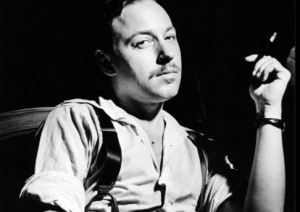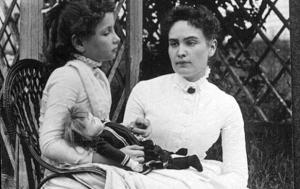And while the future’s there for anyone to change, still you know it seems
It would be easier sometimes to change the past. . .
(“Fountain of Sorrow” Jackson Browne)
Sometimes, it’s something we truly earned—and didn’t get. The career-making job that would have launched our dreams. Sometimes, it’s something we never had, but always craved. Parents who could love us. And sometimes it’s just one terrible moment: The car we failed to see in time. Whatever it is, in most of our lives there lurks The thing that cannot be changed. It’s the moment, the decision, the situation that all our effort and talent and endurance cannot alter or undo.
Successful writers and actors, business people and ballplayers, if they’re honest, often mention the role luck played in their achievement. Along with the hard work and long hours, they confess to being in the right place at the right time. No one mentions the opportunities that went to someone else, the love that never materialized, the awful accident of standing in the wrong place at the wrong time.
 And that’s the hardest part about The thing that cannot be changed. It’s almost never the result of our own doing. Perhaps that’s why it looms so large. It lies outside our control, and people like to control their own lives. When someone else denies us our most basic needs, tramples our dreams, we experience it as an injustice, and injustice bites deep. Its grip is tenacious.
And that’s the hardest part about The thing that cannot be changed. It’s almost never the result of our own doing. Perhaps that’s why it looms so large. It lies outside our control, and people like to control their own lives. When someone else denies us our most basic needs, tramples our dreams, we experience it as an injustice, and injustice bites deep. Its grip is tenacious.
Yet, we must learn to live with The thing that cannot be changed. Thrive in spite of it. Not let it swamp us internally or accept it as a judgment of our own worth. There’s a myth that only losers suffer from The thing that cannot be changed. That successful people simply leave adversity in the dust. Would that it were it so easy.
“The Places That Failed Us Before”
Tennessee Williams was a two-time Pulitzer prize winner and hailed as one of the greatest dramatists in 20th-century American theater. Decidedly a brilliant writer and a great success. But he was never able to stare down The thing that cannot be changed.
For Williams, The thing was twofold: The abusive, alcoholic father who disdained and bullied a son he considered weak; and the controlling, puritanical mother horrified by all things sexual. Williams heard their message loud and clear: “You are wrong as you are.”

In one particularly harrowing incident, his father hauled him out of the University of Missouri after he failed a military training course in his junior year, and put him to work in the factory of the International Shoe Company where the senior Williams was an executive. Tennessee hated the daily grind and eventually suffered a nervous breakdown.
After he recovered, Williams enrolled in another college, and later studied at the Dramatic Workshop of The New School in New York City. Speaking of his early days as a dramatist, collaborating with others on a play for an amateur summer theater group, Williams wrote, “The laughter … enchanted me. Then and there the theatre and I found each other for better and for worse. I know it’s the only thing that saved my life.”
The hope in that last sentence is moving; its subtext, haunting: If I just work hard enough, long enough, I can write my way free of my pain. But he never did. Despite using that pain to create some of the most memorable characters on the stage (Big Daddy, Amanda Wingfield), he remained trapped within The thing that cannot be changed. Elia Kazan, who directed many of Williams’s plays said, “Everything in his life is in his plays, and everything in his plays is in his life.”
 In 1939, with the assistance of his agent, he received a $1,000 grant from the Rockefeller Foundation for a play he was writing, Battle of Angels. The play foundered when it opened, but Williams was on his way. And yet, a poem he penned that same year reveals how badly The thing that cannot be changed dogged him. Cried the Fox speaks of an animal, running in ever-narrowing circles—frantic, desperate, lonely—always coming back to the places of past hurt and doubt.
In 1939, with the assistance of his agent, he received a $1,000 grant from the Rockefeller Foundation for a play he was writing, Battle of Angels. The play foundered when it opened, but Williams was on his way. And yet, a poem he penned that same year reveals how badly The thing that cannot be changed dogged him. Cried the Fox speaks of an animal, running in ever-narrowing circles—frantic, desperate, lonely—always coming back to the places of past hurt and doubt.
Williams once remarked that “A high station in life is earned by the gallantry with which appalling experiences are survived with grace.” But the undertow of those experiences finally claimed him. He died of asphyxia, an accident related to the quantity of alcohol and drugs he consumed over the last 30 years of his life. His obituary in The New York Times (February 27, 1983) paid homage to him as “a master of dramatic moments who created lost, tortured characters struggling for dignity and hope in a world that often denied both.”
Beyond Her Own Pain and Anger

Helen Keller became acquainted with The thing that cannot be changed at 19 months, when a severe illness left her blind and deaf. Imagine the terror of that. Your world goes dark and silent, and you are too young to even grasp why. By all accounts, Helen spent the next five years in a rage, rejecting every attempt to reach her. It was only when the young teacher, Annie Sullivan, at last broke through that dark silence and communicated with her, that Helen understood there might be something beyond her own pain and anger.
As an adult, she used that discovery to help other people afflicted with blindness. She joined the American Foundation for the Blind. For 40 years, this organization served as her global platform to advocate for people with vision loss. She saw to it that state commissions for the blind were established, rehabilitation centers were built, and education was made accessible to children without sight. She also championed the rights of working people and women’s suffrage.
It is a hard thing for us humans to accept, but the bottom line is this: We cannot control other people and we cannot change the past. We can only control our own actions and responses. So when The thing that cannot be changed brings us to our knees, as it sometimes will, we must learn to breathe with it. As Helen Keller discovered, it is one aspect of our personal story, but it is not our whole story. So we own it, and then we rise up. And carry on.


Wow! Amy you are truly a philospher and articulate your tremendously feeling and insightful thoughts so well that we can engage with them too! Thank you for this and all of your shared Higher Thoughts!
LikeLike
Thanks, Sandra. It’s a subject I’ve long been wanting to write about. I’m glad it resonated in some way for you.
LikeLike
A wonderful meditation. It is heartening, somehow, to realize that we who have many “things that can not be changed” are not alone. Thank you, too, for the Williams poem, with which I was unfamiliar, and for the curious sculpture that opens your post.
LikeLike
Thanks, Ed. I studied drama in college (as part of my Lit major). My prof loved Williams. I must credit him for pointing out that poem and the significance of the line “continue this fatal returning to places that failed me before.” I have thought about it times without count over the years. And still do.
LikeLike
amen.
LikeLike
The hardest reality in my life has been to realize that certain people in my life were not going to change — they always knew how to hit my hot buttons. The only sane thing I could do was to try not to react, which is very hard. Thanks for your post — always insightful.
LikeLike
Thanks, Toni. I understand completely what you mean about coming to terms with the people in our lives who, for whatever reasons, we wish we could have a different relationship with, but cannot.
LikeLike
Wonderful post. This made me cry. It is so true that sometimes we get caught up so much in the thing that cannot be changed that we paralyze ourselves. Helen Keller was certainly a great example of someone who overcame and helped because of the thing that she could not change.
LikeLike
Thanks, Lauren, for letting me know how much the post meant to you. As you know, writing is solitary work, so your kind comments are truly appreciated.
LikeLiked by 1 person
This post brought me up short – I simply had to stop and reflect on it. Such a powerful and thought-provoking piece of writing. Thank you so much.
LikeLike
Thanks, Debs. For some reason, I didn’t get a WP notice about your comment and just happened upon it. A wonderful way to start my day.
LikeLike